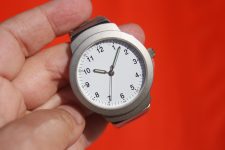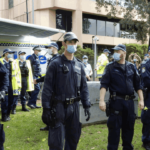How to Beat a Drink Driving Charge

Our video and blog post below talks about the main defences to drink driving.
Most people charged with drink driving just plead guilty.
However, there are a number of ways to defend drink driving charges.
Here are four of the most common defences to drink driving:
Unsafe Reading
The most common way to defend a drink driving charge is to establish that the concentration of alcohol was likely lower at the time of driving than later when analysed at the police station.
There are dozens of studies showing that a person’s blood alcohol concentration increases for as much as an hour after their last drink.
This means that if someone has a few quick drinks and then drives, their blood alcohol concentration may be less when driving than an hour later when they are tested at the police station.
Several factors are relevant when assessing a person’s alcohol concentration at the time of driving, including:
- age, sex and weight,
- when and what food was consumed,
- number and type of alcoholic drinks,
- time of first and last drink,
- time of ‘roadside breath test’, and
- time of ‘breath analysis’ at the police station.
Experienced drink driving lawyers will be able to determine – by asking a few short questions – whether a client’s blood alcohol concentration may have been lower at the time of driving than later when analysed.
If the lawyer believes it may indeed have been lower, a forensic pharmacologist can be engaged for a report about the likely concentration at the time of driving.
That report can be used to:
- request withdrawal of the charge;
- request reduction of the charge-type, eg from ‘mid range PCA’ to ‘low range PCA‘, and/or
- to defend the charge at a hearing.
The ‘Two-Hour’ Rule
Police are not permitted to breath test a person more than 2 hours after the person last drove.
If they do so, the evidence can be excluded by the court.
If it appears that police may have broken this rule, your criminal lawyer should notify them and request that the drink driving charge be withdrawn.
If police still proceed with the case, your lawyer can fight for the evidence to be excluded in court, and in certain cases for legal costs to be awarded in your favour.
The ‘Home Safely’ Rule
Police are not permitted to require a driver to undergo a breath test on their own property.
If they do so, the evidence can be excluded by the court.
Honest and Reasonable Mistake
This defence is available to persons who ‘honestly and reasonably’ believed they were under the limit when driving.
It is often easy to prove that a person’s mistake was ‘honest’.
However, it is becoming more and more difficult to prove that it was ‘reasonable’.
This is because there is so much advertising about not ‘drinking and driving’ at all.
Your drink driving lawyer can help you beat a drink driving charge if any of the above defences apply to you.
For more information: https://www.sydneycriminallawyers.com.au/traffic/offences/drink-driving/
Going to court for a traffic offence?
If you are going to court for a traffic offence, call or email Sydney Criminal Lawyers anytime to arrange a free first consultation with an experienced, specialist traffic lawyer who will accurately advise you of your options, the best way forward, and fight for the optimal outcome in your specific situation.






